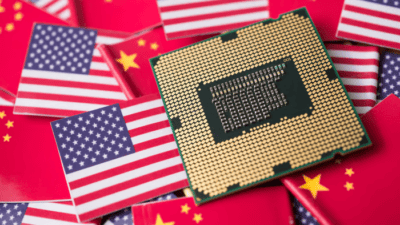This article was originally published on Fool.com. All figures quoted in US dollars unless otherwise stated.
The metaverse is becoming a popular investment theme of late. Investors are scrambling for stock ideas to avoid missing out on what many are suggesting will be a huge trend.
While much about the metaverse is speculative right now and lots of new companies are coming to market with their ideas for capitalizing on it, investors do not have to buy in on unknown or unproven startups to benefit from the tailwind. There are well-established companies that investors can bet on to ride the metaverse story.
Let's explore two of these metaverse stocks that might just be worth buying and holding for the next decade of development.
1. Meta Platforms: The social media-turned-metaverse contender
Meta Platforms (NASDAQ: FB), formerly known as Facebook, has been a social media platform for most of its existence. With more than 3 billion monthly active users, Meta is used by almost half of the global population who access at least one of its family of apps -- Facebook, Facebook Messenger, Instagram, and WhatsApp.
While its social media apps generate most of the revenue -- with income mainly from advertising -- Meta made a strategic move last year to pivot the company's focus toward the metaverse. In this new frontier, Meta aims to help users maintain a feeling of physical presence, beyond just text and video, when connecting with anyone, anywhere.
For example, today, we video call our family members who live in another location using Facebook Messenger, Whatsapp, or another video streaming program. But in the metaverse world, we can put on our VR headsets and be together with our family members in a virtual space. The experience will be similar to watching Avatar in a 3D cinema. The difference is that we can interact with the virtual avatars of our family members. Or imagine a world where we can attend any live concert, globally, without leaving the comfort of our homes. All we need is to put on Meta's Oculus headset and our favorite artists appear in front of us (at least virtually). And while we are at the concert, we can make purchases in a virtual marketplace and the products we buy can be virtual as well (like dressing our avatar in a concert T-shirt) or real (like buying an actual concert T-shirt) and the products are then shipped to our homes. These are just some early and basic examples of what we can experience in a metaverse.
So what is Meta's role in this gigantic shift? To start, the company wants to help develop the core technologies -- like virtual reality (VR) and augmented reality (AR) -- as well as the social platforms that will bring the metaverse to life. It will also focus on building a more inclusive community, ensuring that privacy and safety, open standards, and the appropriate governance are all there from the start.
While all these sound good and exciting, investors should note that the metaverse will take years, if not decades, to become mainstream. Along the way, Meta will need to invest heavily in technology, talent, and partnerships to pull this off. It helps that the tech company has an advertising business that generates billions in profit annually, billions of active users, thousands of world-class talents (developers), and a visionary founder who has significant skin in the game.
With these ingredients in place, Meta can take a long-term approach toward building its metaverse business.
2. Tencent Holdings: The leading technology conglomerate in China
Tencent Holdings (OTC: TCEHY) is one of the most valuable companies in China thanks to its wide-ranging business activities. It is the leading Chinese company in online games, social media, mobile messaging, fintech, and more. Think of it as the combination of Meta, Activision Blizzard, and PayPal Holdings. Besides its fully owned businesses, Tencent is also an investor in some of the best companies globally, including Meituan, Pinduoduo, Sea Limited, Spotify Technology, and Snap, just to mention a few.
Unlike Meta, which has shifted its whole company to focus on metaverse, Tencent has yet to make such a major change to its business model. Nevertheless, the latter's exposure to the metaverse is in no way less significant.
To start, Tencent is already an active participant in metaverse via its exposure to video games. As the largest gaming company in China, the company is well-positioned to take the next step of making its games more interactive and immersive. To this end, Tencent has all the resources -- cash, developers, and users -- to pivot its gaming business toward that direction.
Besides, it has exposure to other leading gaming companies -- such as Epic Games and Roblox -- to help it ride the metaverse trend. For example, Tencent and Roblox have a joint venture that will distribute Roblox's content in China. In other words, Tencent will benefit directly (from accessing Roblox's content) and indirectly (from watching and learning Roblox's moves) so long as it maintains its partnership with Roblox.
On top of that, Tencent has recently acquired Chinese gaming-focused specialty smartphone maker Black Shark as a move into the AR/VR hardware business. This move completes the puzzle within Tencent's metaverse plan since the company already has all the necessary pieces through its wide-ranging businesses.
In short, investors looking to ride the metaverse tailwind might want to keep Tencent on their radar.
This article was originally published on Fool.com. All figures quoted in US dollars unless otherwise stated.









